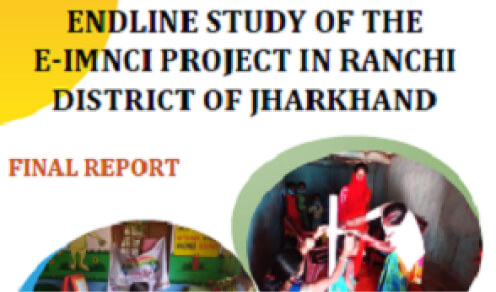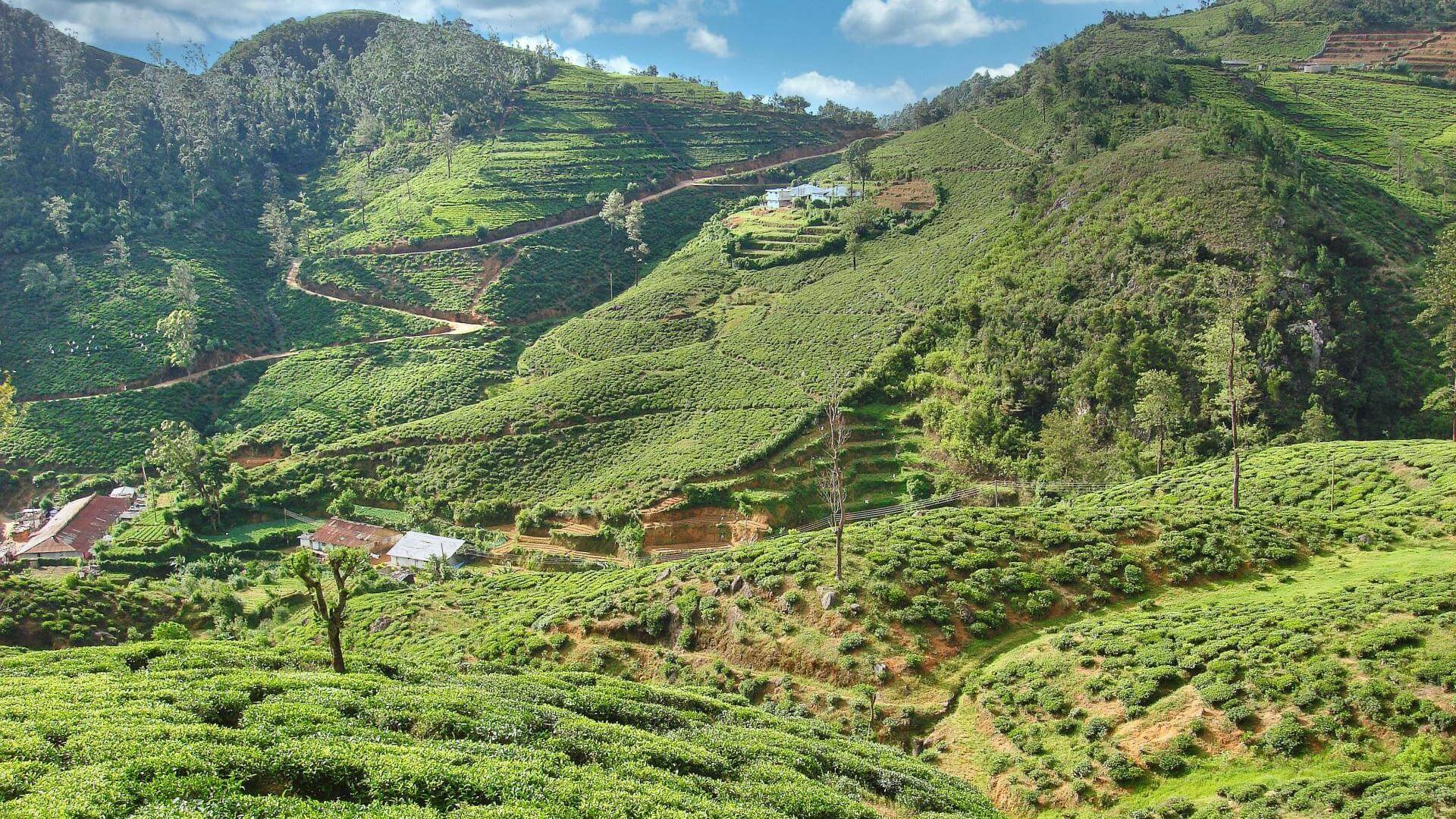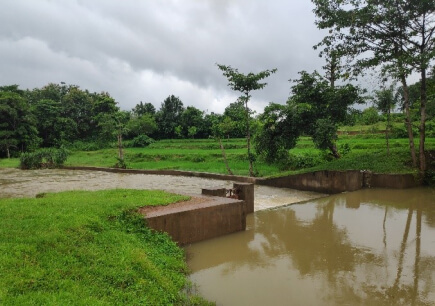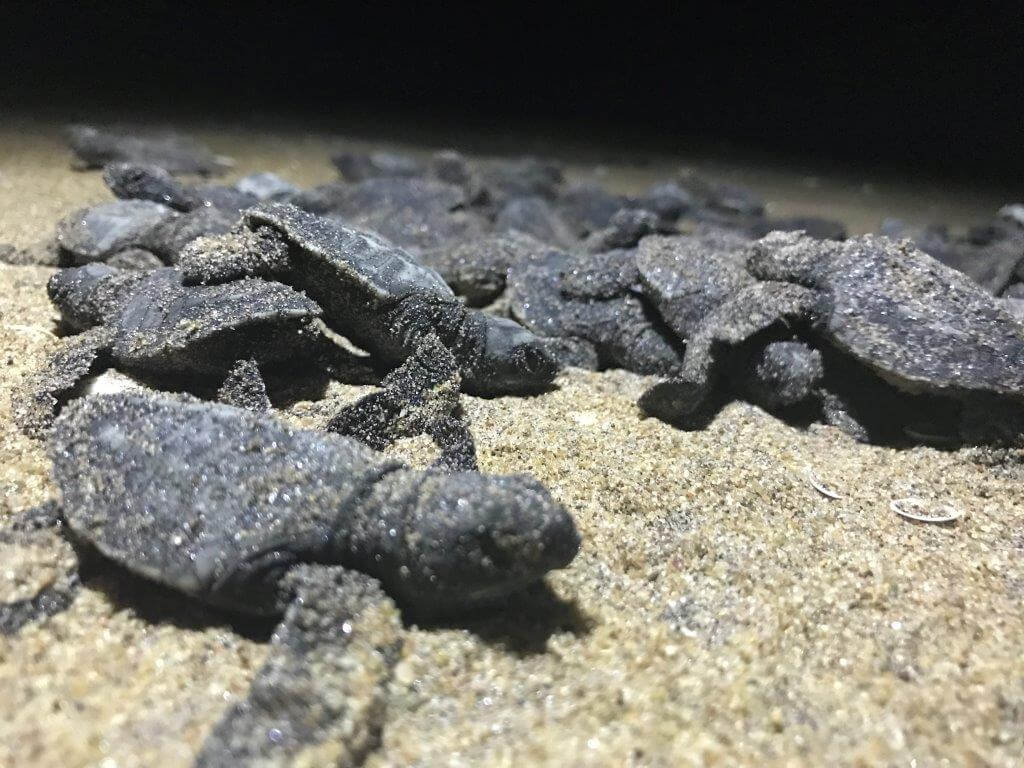Climate Adaptation
Evaluation Management Unit for the Forestry, Land Use and Governance (FLAG) Programme, Indonesia
DFID
Evaluation Management Unit for the Forestry, Land Use and Governance (FLAG) Programme, Indonesia
FLAG was a £32.5 million, 3-year programme to support action to reduce the rate of deforestation and Peat land degradation in Indonesia...
12.1
Generated 12.1 million tonnes of avoided CO2e
20,958 hectares
Prevented 20,958 hectares of deforestation and forest degradation
33,000
Reduced GHG emissions from an area of 33,000 hectares of peatlands
Infrastructure for Climate Resilient Growth in India (ICRG) Programme, India
DFID
Infrastructure for Climate Resilient Growth in India (ICRG) Programme, India
ICRG was a 43-month Technical Assistance (TA) Programme commissioned by the United Kingdom’s Department for International Development (DFID) that aimed to support the Ministry of Rural Development (MoRD), Government of India. Selected from 2500 blocks under the special focus of MGNREGA by the Government of India, the ICRG programme was implemented in 103 blocks in the states of Bihar, Odisha, and Chhattisgarh. The programme aimed to ensure that the most vulnerable sections in selected geographies were able to tackle the impact of climate extremes. Facilitating a better understanding of climate factors, capacity building of field practitioners, and improving the design of the work being undertaken, ICRG synergized its resources with MGNREGA in building climate resilience of the most vulnerable to achieve improved quality and climate resilient assets.
35000+
people trained on climate proofing MGNREGA assets
18,000+
MGNREGA and Line Department functionaries trained
27
Training Modules & Guidebooks developed
Preparation of Integrated Coastal Zone Management Plan (ICZMP) and Shoreline Management Plan for Odisha, India
THE WORLD BANK
Preparation of Integrated Coastal Zone Management Plan (ICZMP) and Shoreline Management Plan for Odisha, India
The Government of Odisha, with financial assistance from the Ministry of Environment and Forests (MoEF), Government of India (GoI) and the World Bank, initiated the ICZMP project. The project aimed...
GIS-Based Database Creation
to analyse potential for damage to people and property due to coastal hazards
Conceptual Modelling
to undertand coastal behaviour to comprehend the past, present and potential future hazards
Sectoral Plan
development with focus on coastal sectors of highest priority considering all the sectoral aspects
Land Vulnerability Mapping
for analysing potential for damage to people and property due to coastal hazards
Shoreline Management Sub Plan
creation to provide broad management strategies for delineated sediment cells
Integrated Coastal Zone Management Plan
creation to access all the coastal features and provide implementation strategies in consultation with all the stakeholders
Climate Adaptation
Evaluation Management Unit for the Forestry, Land Use and Governance (FLAG) Programme, Indonesia
DFID
Evaluation Management Unit for the Forestry, Land Use and Governance (FLAG) Programme, Indonesia
FLAG was a £32.5 million, 3-year programme to support action to reduce the rate of deforestation and Peat land degradation in Indonesia...
12.1
Generated 12.1 million tonnes of avoided CO2e
20,958 hectares
Prevented 20,958 hectares of deforestation and forest degradation
33,000
Reduced GHG emissions from an area of 33,000 hectares of peatlands
Infrastructure for Climate Resilient Growth in India (ICRG) Programme, India
DFID
Infrastructure for Climate Resilient Growth in India (ICRG) Programme, India
ICRG was a 43-month Technical Assistance (TA) Programme commissioned by the United Kingdom’s Department for International Development (DFID) that aimed to support the Ministry of Rural Development (MoRD), Government of India. Selected from 2500 blocks under the special focus of MGNREGA by the Government of India, the ICRG programme was implemented in 103 blocks in the states of Bihar, Odisha, and Chhattisgarh. The programme aimed to ensure that the most vulnerable sections in selected geographies were able to tackle the impact of climate extremes. Facilitating a better understanding of climate factors, capacity building of field practitioners, and improving the design of the work being undertaken, ICRG synergized its resources with MGNREGA in building climate resilience of the most vulnerable to achieve improved quality and climate resilient assets.
35000+
people trained on climate proofing MGNREGA assets
18,000+
MGNREGA and Line Department functionaries trained
27
Training Modules & Guidebooks developed
Preparation of Integrated Coastal Zone Management Plan (ICZMP) and Shoreline Management Plan for Odisha, India
THE WORLD BANK
Preparation of Integrated Coastal Zone Management Plan (ICZMP) and Shoreline Management Plan for Odisha, India
The Government of Odisha, with financial assistance from the Ministry of Environment and Forests (MoEF), Government of India (GoI) and the World Bank, initiated the ICZMP project. The project aimed...
GIS-Based Database Creation
to analyse potential for damage to people and property due to coastal hazards
Conceptual Modelling
to undertand coastal behaviour to comprehend the past, present and potential future hazards
Sectoral Plan
development with focus on coastal sectors of highest priority considering all the sectoral aspects
Land Vulnerability Mapping
for analysing potential for damage to people and property due to coastal hazards
Shoreline Management Sub Plan
creation to provide broad management strategies for delineated sediment cells
Integrated Coastal Zone Management Plan
creation to access all the coastal features and provide implementation strategies in consultation with all the stakeholders

Perspectives Climate Group GmbH
Feasibility Study on Climate-resilient community access to safe water in Ethiopia
A key output of the Climate Finance Innovators Project is to develop a Funding Proposal (FP) for the GCF to mobilise financing for the proposed activity “Climate-resilient community access to safe water powered by renewable energy in drought-vulnerable regions of Ethiopia”.

EACDS
Investing in Forests and Nature (INAFOR)
Investing in Forests and Nature (INAFOR) design is about supporting effective forestry and land use with the goal of reducing deforestation and greenhouse gas emissions through the promotion of nature-based solutions to climate change.

Department for Business, Energy and Industrial Strategy (BEIS), Government of United Kingdom
Early Formative and Impact Evaluations of the Climate Leadership in Cities (CLIC) Programme, Global
CLIC aimed to support cities in developing countries to plan for, and implement, ambitious climate actions. It provided technical assistance to 15 megacities in Asia and South America to develop climate action plans consistent with the Paris Agreement.

Endline Study of the e-IMNI Project in Ranchi, Jharkhand
Integrated Management of Neonatal and Childhood Illnesses (IMNCI) is a cost effective and efficient strategy to improve child survival and is tried and tested across various parts of the globe. However, the adherence to IMNCI protocol has always remained a challenge in a country like India where community health institutions are far behind to meet the standard. IeDA helps primary healthcare workers (HCW) improve their level of adherence to the IMCI clinical guideline.In India, IeDA has been contextualized to e-Integrated Management of Neonatal and Childhood Illness (e-IMNCI) in Jharkhand. The E-IMNCI pilot activity was carried out under sub award by USAID Vriddhi Project.






